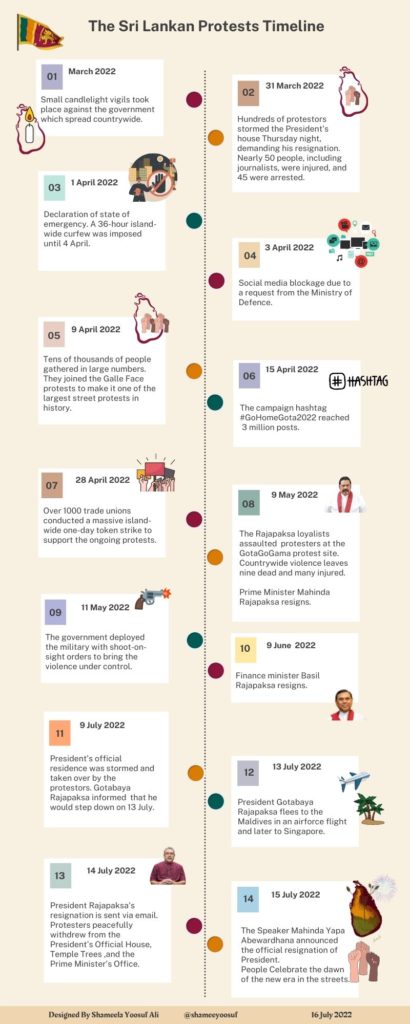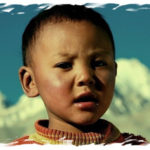No one enjoys their morning cup of tea or egg hoppers in Sri Lanka. Instead, many Sri Lankans stand in line at gas stations, hoping they can get enough fuel to make it through another day. The country has become one big gas station. The government has been accused of corruption and mismanagement of funds, leading to a collapse of the economy. As a result, foreign currency reserves have virtually run dry.
It is heartbreaking to see many people struggling to survive without money to pay for medical supplies, fuel, or essential goods like food. In addition, there is no medicine available to treat even the most common illnesses. All this has resulted in long queues for fuel, constant blackouts, and high prices for essential goods like food and medicine.
According to World Food Programme, nearly five million people – or 22 % of the Sri Lankan population – are food insecure and in need of assistance. Nutritious foods like vegetables, fruits, and protein-rich products are now out of reach for many low-income families. WFP’s recent surveys indicated that 86% of families resort to at least one coping mechanism, including eating less, eating less nutritious food, or even skipping meals altogether.
Schools are not functioning at total capacity due to the lack of electricity and lack of fuel for transportation. Students are forced to stay home as a result of these issues.
Many international airlines have suspended flights to the country due to rising concerns over the country’s political stability.
The future looks bleak for Sri Lanka, especially if things continue.
What does the future hold? As a Sri Lankan myself, what is my duty? These questions are rattling around in my head every day.
I’ve never seen anything like it before
Sri Lanka is famous for its rich biodiversity, large cinnamon and tea exportation, and stunning natural wonders. Just 20 years ago, it was one of Asia’s fastest-growing economies, with a GDP per capita that was among the highest in the region. But sadly, today, poverty levels have risen sharply, and there is little hope for improvement in sight.
I was born and raised in Sri Lanka. It broke my heart when I visited my motherland this summer. People were starving and desperate amid constant blackouts and failing systems.
I’ve never seen anything like it before, and I am unsure if I ever want to see something like this again in my lifetime.
Sri Lanka has suffered decades of corruption and nepotism by its ruling elites, who have used the country’s wealth to fill their pockets. In addition, propagated attacks toward minorities and increasing racist propaganda have changed the country into hell.
Sri Lanka politicians are focused on personal profit and the people’s anger flares against the government. The government’s increasingly authoritarian policies have instigated deteriorating economic conditions while making its people increasingly destitute.

The power of the people
Trying to get rid of the current system and corruption, people’s protests all over the country have caught on like wildfire, keeping hopes alive in millions of Sri Lankans within and outside the county. There is bubbling energy in Sri Lanka right now, with protests across the country against the government. These demonstrations are gaining momentum and power, with hundreds of thousands of people taking to the streets to fight for their rights.
July 9, 2022, will go down as a golden day in the history of Sri Lanka. Coincidently It was Eid Al Adha for us. The festival of sacrifice.
Thousands of protesters stormed into President’s residence in Colombo’s high-security Fort area, breaking the barricades and demanding President’s resignation over failing the country.
It reminds me of a poem I adore, from Bharathi – a Tamil writer, poet, and Indian independence activist.
I found a spark of fire
and kept it in a tree hole in the middle of a forest.
The forest burned down.
Does it really matter
A spark’s valour, young or old?
Thousands of people flocked the streets of Colombo and other cities of Sri Lanka as Sri Lankans celebrated the resignation of President Gotabaya Rajapaksa on July 14, 2022.
Mr Rajapaksa fled to Singapore that Thursday from the Maldives as massive protests grew in Sri Lanka.
It will go down as an unforgettable day in Sri Lankan history.
Since acquiring freedom from the British in 1948, the country has not seen another freedom struggle on this scale.
The 20-year-old political dynasty came to an end.
Thousands of protesters, young and old, men and women, Sinhalese, Tamils, and Muslims, demanded justice, asking the prime minister and the President to step down. The President and Priminister are brothers by blood.
Sri Lankan protesters have taught the world how to organize peaceful and exemplary protests. Their unity, dedication, and environmental consciousness are impeccable. From April until now, protestors consistently aimed to make politicians listen to the voices of ordinary Sri Lankans.
Today they have succeeded. I can not express what I feel right now in mere words. I am proud as a Sri Lankan.
The Speaker Mahinda Yapa Abewardhana announced the official resignation of President Gotabaya Rajapaksa.
People celebrated the dawn of the new era in the streets.
Shortcomings in our political system
However, the celebrations were short-lived.
In a democracy, Parliament is made up of elected representatives of the people. Therefore, the people exercise their power to govern themselves through Parliament. But unfortunately, in Sri Lanka, the executive presidency gives the holder of the office a free hand to do as he pleases without considering the opinions of the voters who elected him.
Sri Lankan parliamentarians have elected Ranil Wickremesinghe as the new interim executive president, despite his unpopularity with the masses.
This shows grave shortcomings in our political system.
The people of Sri Lanka have called for the executive presidency to be abolished long before.
As the President took the oath on July 21, the military invaded the protest camps, brutally assaulting peaceful protesters and arresting some of the leaders.
It is saddening and disturbing to see what is unfolding.
Sri Lanka is its People. At the same time, I am inspired by people’s power, energy, dedication, and consistency. Sri Lanka is its people, not its politicians.
However, the road is long, and do not forget that we have numerous challenges ahead.
But, this is the beginning of the end of the old order. And the birth of a new era in Sri Lanka is not far away, is what I want to believe.



